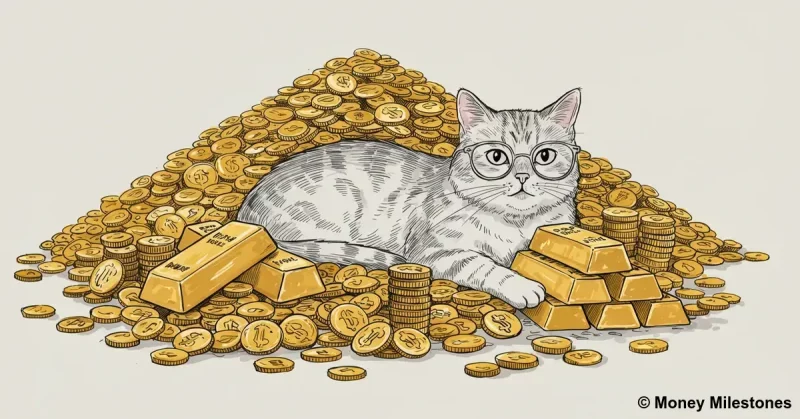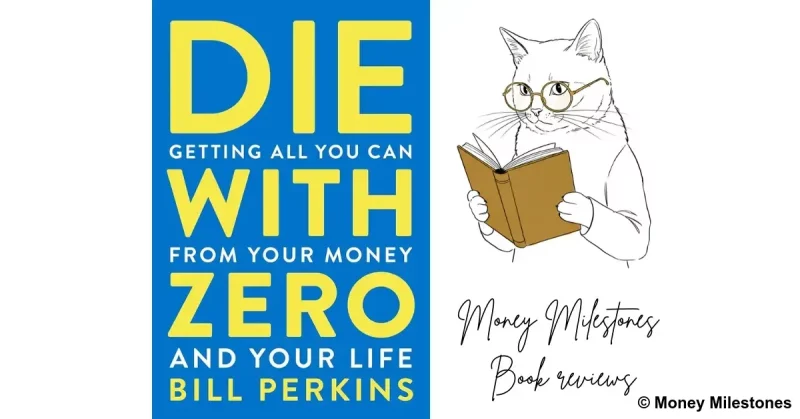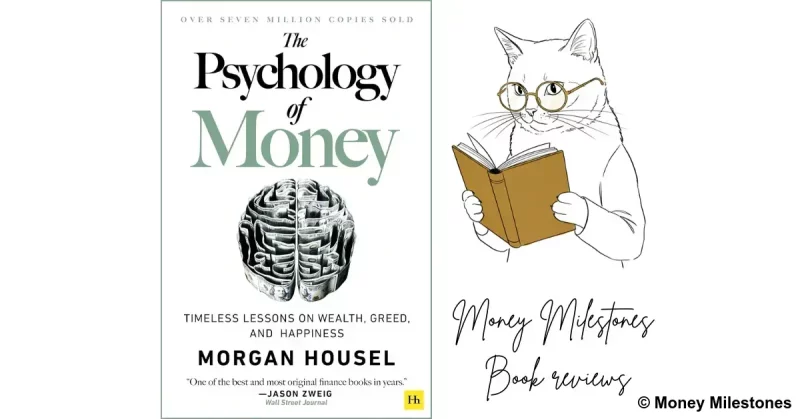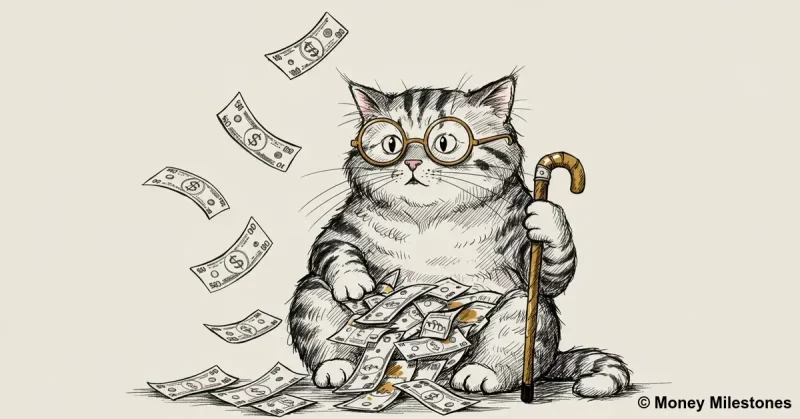What I got wrong about money in my 20s
We all make mistakes, including financial ones, but some have a bigger impact than others. In this article, I’m going to talk about the main money mistakes I made in my 20s. It’s not exactly fun to dig through your own mistakes, but at least I’ve learnt a few lessons. Maybe you’ll spot something familiar. Or better, something to avoid!
Key money mistakes: Not investing early
When I was in my 20s, I didn’t know anything about investing, and I didn’t care either. I thought it was boring and unimportant. I only started learning about key topics, like when to save and when to invest, or how to retire early, when I was in my 30s. In hindsight, that was a major mistake.
Why investing early matters
I’m sure you’ve come across one of those stories: someone with a normal job, a modest home, and a run-down car dies, and only then do their family and neighbours discover that they were, in fact, immensely wealthy. How is that possible? Every time, the answer is the same. They started investing young, lived frugally, worked into their later years, and enjoyed a long life. That’s it.
The power of compounding
If you start investing £500 a month at 20 and keep going until you’re 90, you’d end up with nearly £10 million. That assumes a 7% annual return, which is fairly conservative based on historical performance of stock markets. Yes, you read that right: ten million pounds. That also works if you’re using US dollars, or any other currency.
But if you start at 30 instead, you’d only have about half that by 90. That’s the magic of compounding. Wealth grows exponentially. The longer you stay invested, the faster your wealth grows. That’s why starting early is so critical. So this would be my number one message to my younger self: learn about investing, and start as soon as possible.
As a side note, you can run your own numbers using my free savings and investments growth calculator.
Key money mistakes: Opting out of my workplace pension
In the United Kingdom, we have workplace pensions, where you sacrifice a portion of your monthly salary, and both your company and the government add money on top. The corresponding retirement pot is usually invested in stocks, and you can only access your funds after a certain age, when you retire.
This is broadly equivalent to 401(k) and 403(b) plans in the United States or the Superannuation scheme in Australia. Many other countries, such as Canada or Japan, have similar schemes.
Why opting out was a big mistake
One of the major mistakes I made when I was younger was opting out of my workplace pension. I’ve explained why this is almost always a poor decision in a separate article.
The mistake was made worse by the fact that I didn’t invest the money that would have otherwise been invested by my pension provider. So, not only did I pass up free money from my employer and the government, but I also missed out on the power of compounding, which is especially strong when you’re young, as we’ve seen above. Again, not a great financial decision.
Key money mistakes: Not negotiating my pay
When I was in my 20s, I never tried to negotiate my pay. To be fair to my younger self, the jobs I had used fixed salary grids. These roles didn’t seem open to negotiation. That said, I now know that pay is almost always negotiable in some form.
And even if you can’t negotiate your base salary, there are other things you can negotiate, such as your holiday allowance, your bonus, the amount of time you can spend on upskilling and professional development, the projects your work on, and more.
Negotiation is a skill you can learn
Another important lesson I learned is that negotiation is like any other skill. It can be improved through practice. If you read about it (for example, I have an article on how to negotiate a pay rise *wink wink*) and practise it every time you get the chance, you will get better at it.
Sure, it’s uncomfortable. But it’s well worth the effort, since any increase in your pay becomes your new baseline and compounds over time. Not negotiating my pay (and other benefits) was definitely a major mistake I made in my 20s.
Key money mistakes: Not working on my soft skills
This one is critical. No matter your job or where you’re from, your soft skills are just as important as your technical skills. In fact, they’re probably more important.
When I was younger, I thought being good at what I did was enough. I didn’t care what my boss or co-workers thought of me, or even if they thought I was competent. That was a huge mistake. I now realise that what really matters is whether you seem competent and are easy to work with, not whether you’re actually the best at your job.
Being good isn’t enough
I know this might sound cynical. And to be clear, I’m not saying that you shouldn’t aim to be good at what you do. But the reality is that people who get promoted (or, if you’re self-employed, people who land contracts) are usually the ones others enjoy working with and who appear competent enough.
Why soft skills matter for your money
You might be thinking: “Hold on, what does this have to do with money?”. The answer is simple: everything.
If you’re more likeable, charismatic, and easy to talk to, more opportunities will come your way. It’ll be easier to ask for a raise or get promoted. It’ll be easier to land a new job or win over a potential client. You might even bump into the CEO of your dream company and convince them to hire you. Soft skills open doors: they’re the foundation for career and financial growth.
Money mistakes I made in my 20s: Final thoughts
So here they are, the four major money mistakes I made in my 20s:
- Not learning about investing. And not starting early!
- Opting out of my workplace pension. I missed out on free money from my employer and the government.
- Not negotiating my pay. I lost out on money that could have compounded over time.
- Not developing my soft skills. These matter far more than I realised at the time.
Two final thoughts for those in their 20s
If you’re in your 20s and reading this, I want to leave you with two final thoughts. First, you’re already doing a great job by thinking about your financial future. That puts you ahead of most people.
Second, while this stuff is important, don’t overdo it. As Oscar Wilde once said:
Everything in moderation, including moderation.
Make time to enjoy life. Spend time with your friends and family. Pick up a hobby if that’s your thing. Money is a tool to help you build freedom and enjoy life, not an end in itself.
If you enjoyed this article, why not explore my other posts on personal finance? You can also try out some of the free tools on my website, like the early retirement calculator or the emergency fund calculator.







